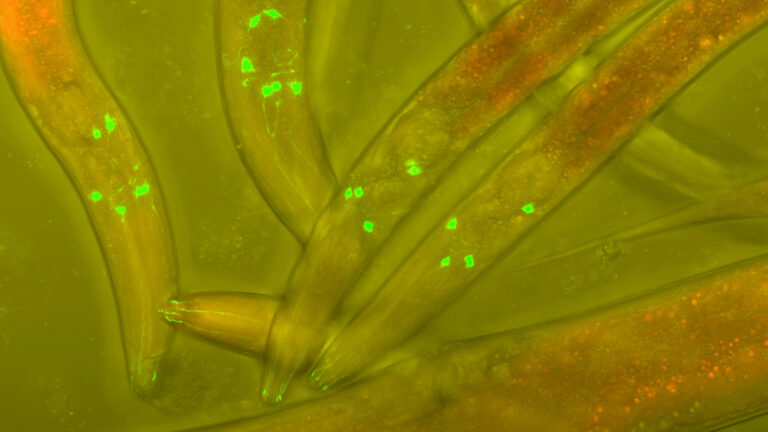Medicine Nobel goes to previously unknown way of controlling genes

On Monday, the Nobel Committee announced that two US researchers, Victor Ambros and Gary Ruvkun, will receive the prize in Physiology or Medicine for their discovery of a previously unknown mechanism for controlling the activity of genes. They discovered the first of what is now known to be a large collection of MicroRNAs, short (21-23 bases long) RNAs that bind to and alter the behavior of protein-coding RNAs. While first discovered in a roundworm, they’ve since been discovered to play key roles in the development of most complex life.
The story behind the discovery is typical of a lot of the progress in the biological sciences: genetics helps identify a gene important for the development of one species, and then evolutionary conservation reveals its widespread significance.
In the worm
Ambros and Ruvkun started on the path to discovery while post-doctoral fellows in the lab of earlier Nobel winner Robert Horvitz, who won for his role in developing the roundworm C. elegans as an experimental genetic organism. As part of the early genetic screens, people had identified a variety of mutations that caused developmental problems for specific lineages of cells. These lin mutations included lin-4, which Ambros was characterizing. It lacked a number of specialized cell types, as well as the physical structures that depended on them.


